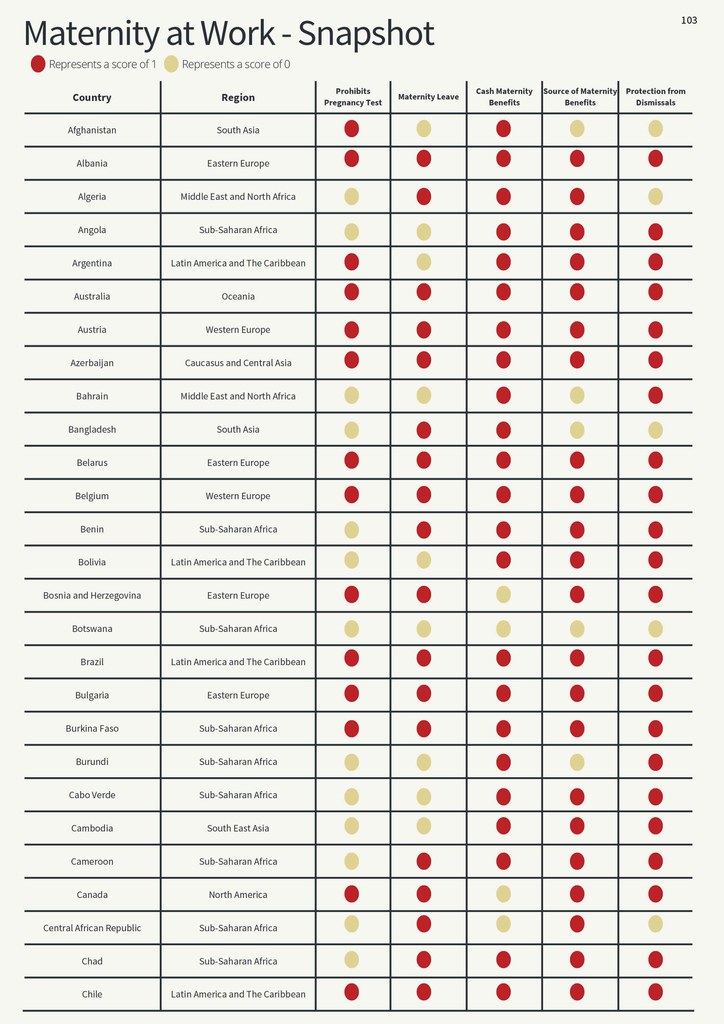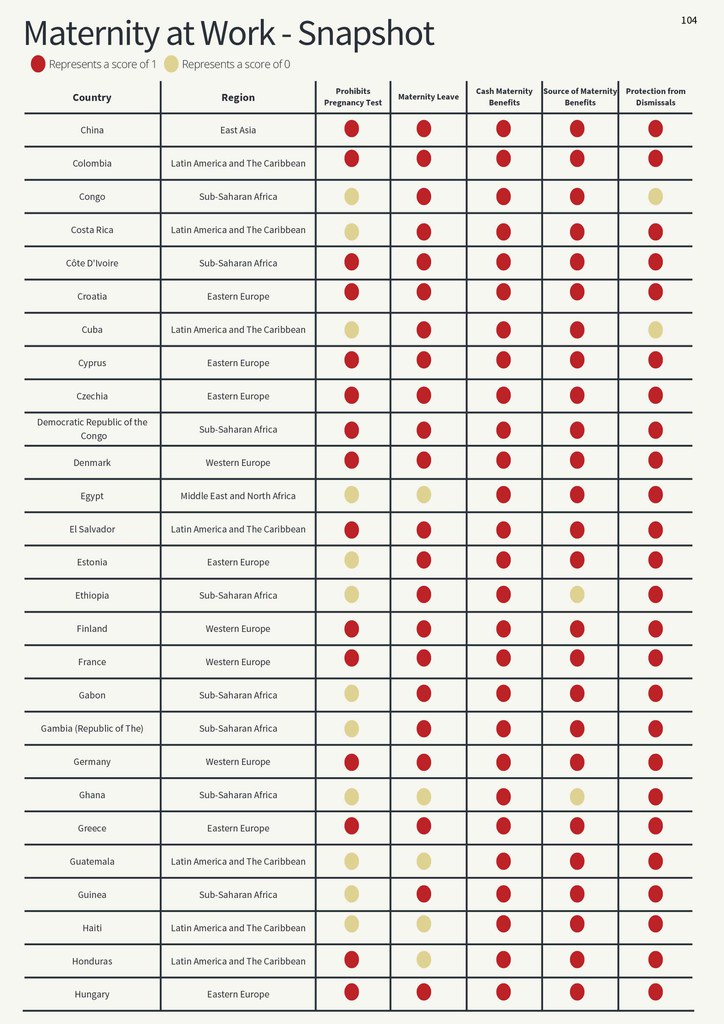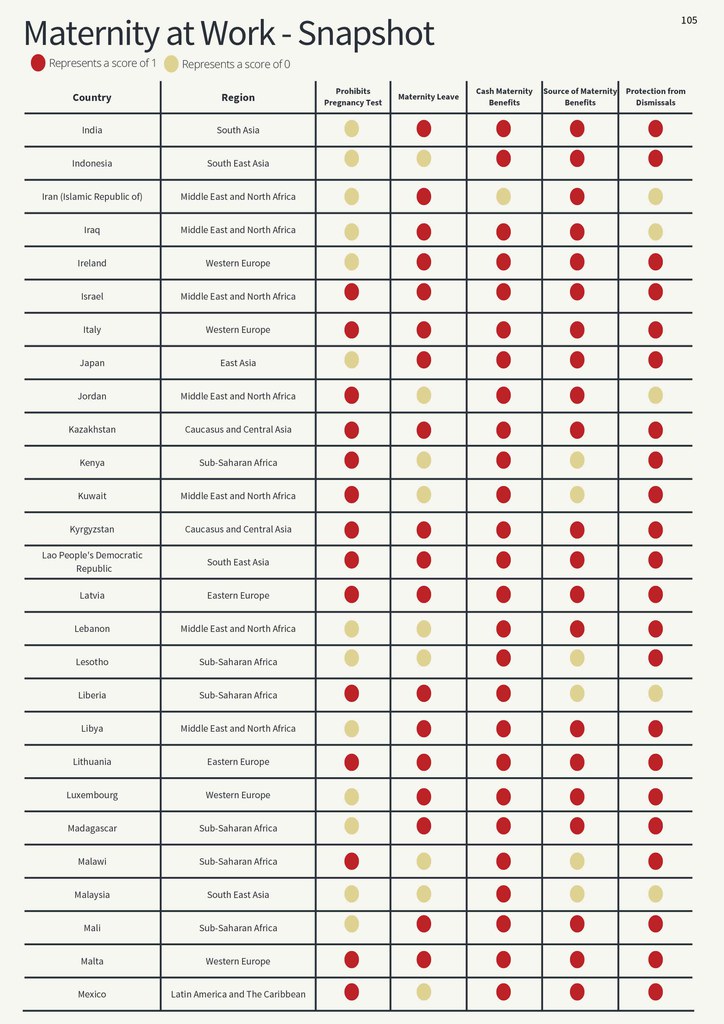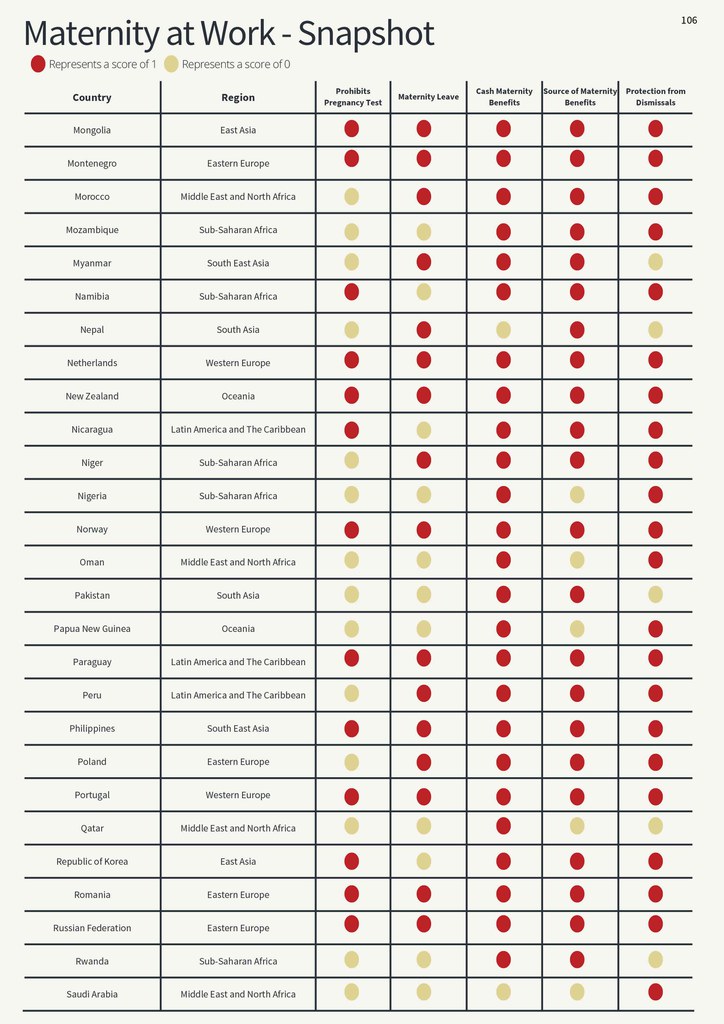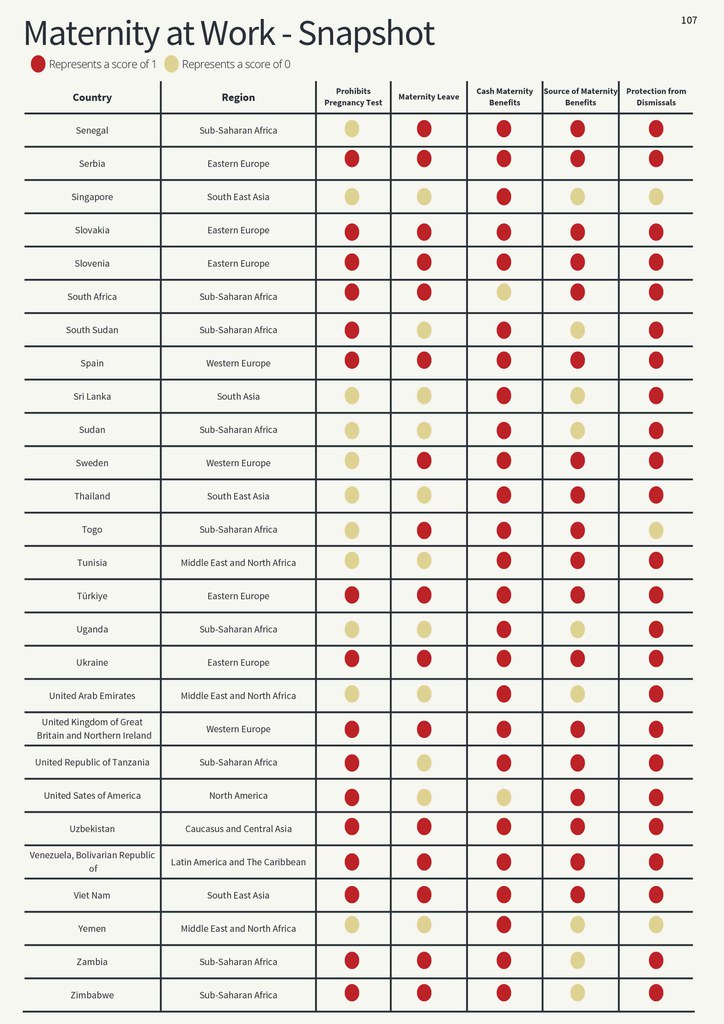Maternity At Work
Maternity protection allows women to successfully combine their productive and reproductive roles without compromising one at the cost of another. Similarly, it protects women from discrimination in the labour market due to their reproductive roles. The Maternity at Work indicator measures whether labour legislation ensures that workers get paid maternity leave and are protected from dismissal during and on account of pregnancy.
5.1 Pregnancy Inquiry During Recruitment
Does the law prohibit inquiring about pregnancy during recruitment?
International Regulatory Standard
Article 9 of the Maternity Protection Convention, 2000 (No. 183) focuses on adopting appropriate measures to ensure that maternity does not constitute a source of discrimination in employment, including access to employment. Measures need to include a prohibition from requiring a test for pregnancy or a certificate of such a test when a woman is applying for employment, except where required by national laws or regulations in respect of work that is prohibited or restricted for pregnant or nursing women under national laws or regulations, or where there is a recognised or significant risk to the health of the woman and child.
Methodology
Whether law prohibits inquiring about pregnancy during recruitment:
1: Labour legislation prohibits employers from inquiring about pregnancy (through pregnancy testing or other means) during recruitment.
0: There is no prohibition in the law on inquiring about pregnancy/family planning during recruitment or making it a recruitment condition.
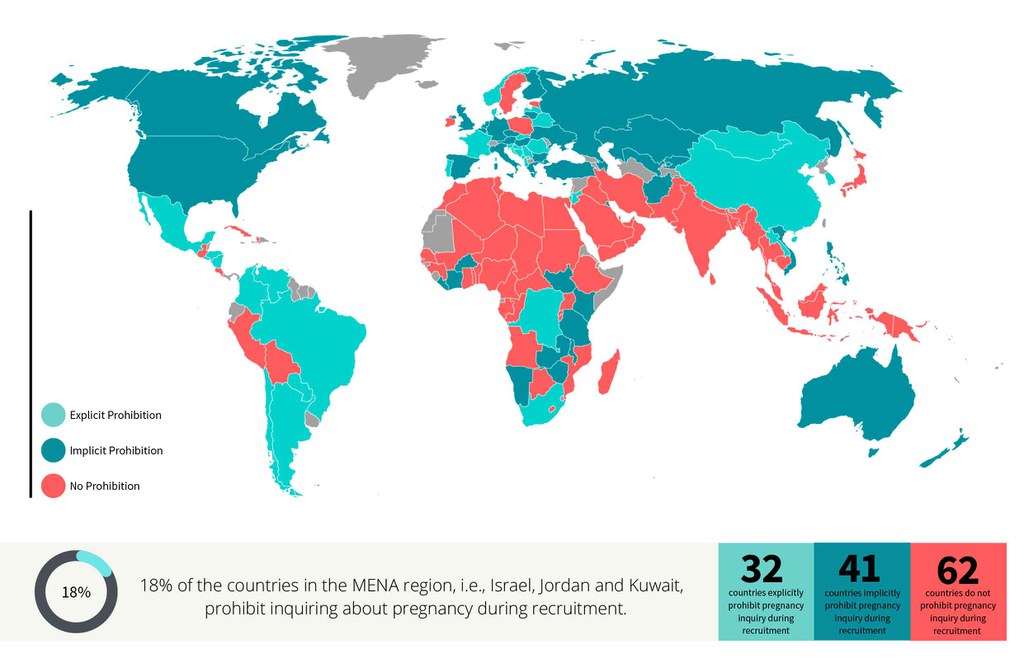
5.2 Maternity Leave
Does the law require paid maternity leave of at least 14 weeks?
International Regulatory Standard
Article 4 of the Maternity Protection Convention, 2000 (No. 183) stipulates that a woman worker shall be entitled to a maternity leave of at least 14 weeks. With due regard to the protection of the health of the mother and that of the child, maternity leave shall include a period of six weeks of compulsory leave after childbirth unless otherwise agreed at the national level by the government and the representative organisations of employers and workers.
Methodology
Whether maternity leave is available for 14 weeks:
1: Pregnant workers have the right to maternity leave of at least 14 weeks.
0: The length of maternity leave is less than 14 weeks.
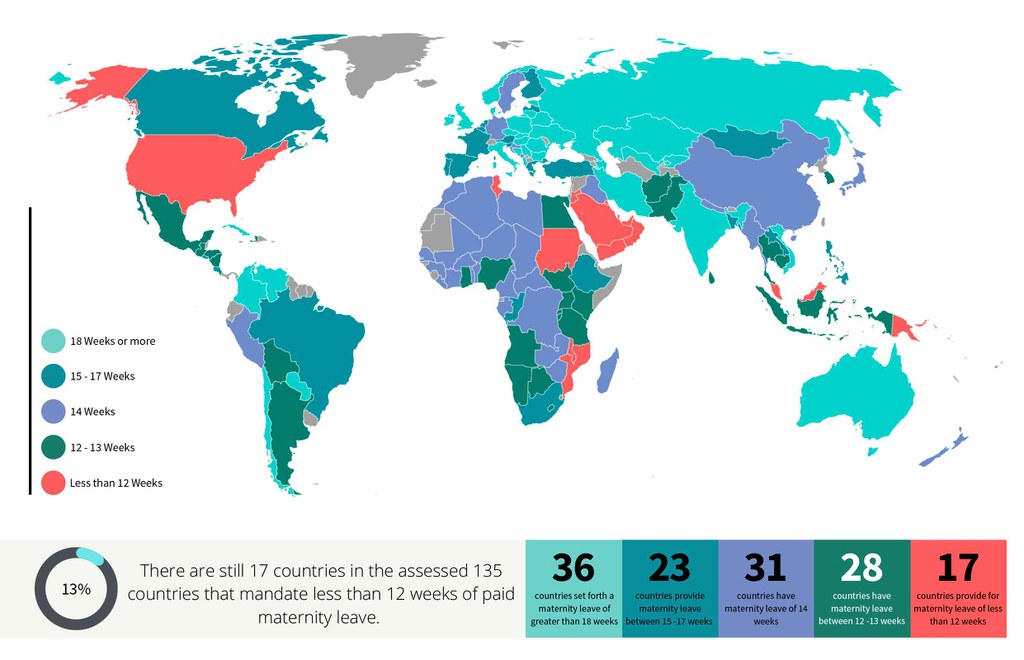
5.3 Maternity Benefits
Does the law require cash maternity benefits to be at least two-third of a worker's former wage?
International Regulatory Standard
Article 6 of the Maternity Protection Convention, 2000 (No. 183) shares that cash benefits shall be provided, in accordance with national laws and regulations, or in any other manner consistent with the national practice, to women who are absent from work on leave, and at a level which ensures that the woman can maintain herself and her child in proper conditions of health and with a suitable standard of living. The amount of such benefits shall not be less than two-thirds of the woman’s previous earnings or of such of those earnings as are taken into account for the purpose of computing benefits.
Methodology
Whether maternity leave benefit is at least two-third of the worker’s former wage:
1: Maternity leave benefit is two-third or higher than the pregnant worker’s former wage. In cases where the maternity leave is over and above 14 weeks, the score will remain 1 if the payment for maternity leave through social insurance or universal benefits is at least two-thirds of the former wage for at least the first 14 weeks. In cases where workers are paid flat rate maternity benefits, these must be at least two-thirds of the applicable minimum wage.*
0: Maternity leave benefit is less than the above threshold.
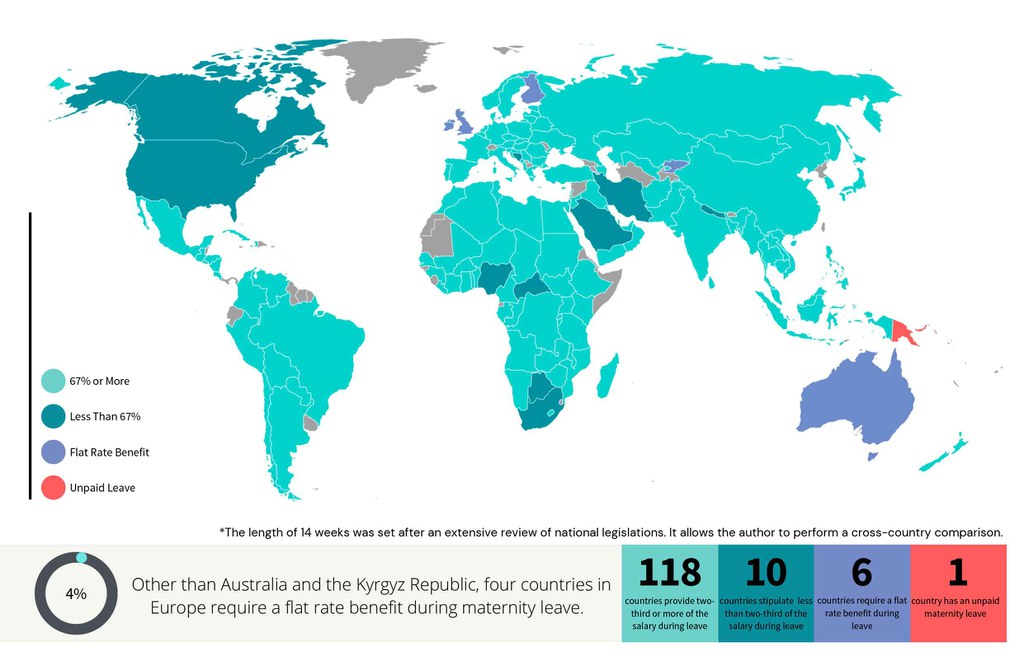
5.4 Source of Maternity Benefits
Does the law require maternity benefits be paid through contributory social insurance or universal benefits system?
International Regulatory Standard
Article 6(8) of the Maternity Protection Convention, 2000 (No. 183) states that in order to protect the situation of women in the labour market, benefits in respect of the leave shall be provided through compulsory social insurance or public funds or in a manner determined by national law and practice. An employer shall not be individually liable for the direct cost of any such monetary benefit to a woman employed by them without that employer’s specific agreement except where such is provided for in national law prior to the introduction of this Convention or it is subsequently agreed at the national level by the government and the representative organisations of employers and workers.
Methodology
Whether maternity benefit is employer liability:
1: Maternity benefit is paid through a contributory social insurance system or through a non-contributory universal benefits system financed through general taxation.
0: Maternity benefit is only employer liability, and employers are required to pay workers their wages during maternity leave.
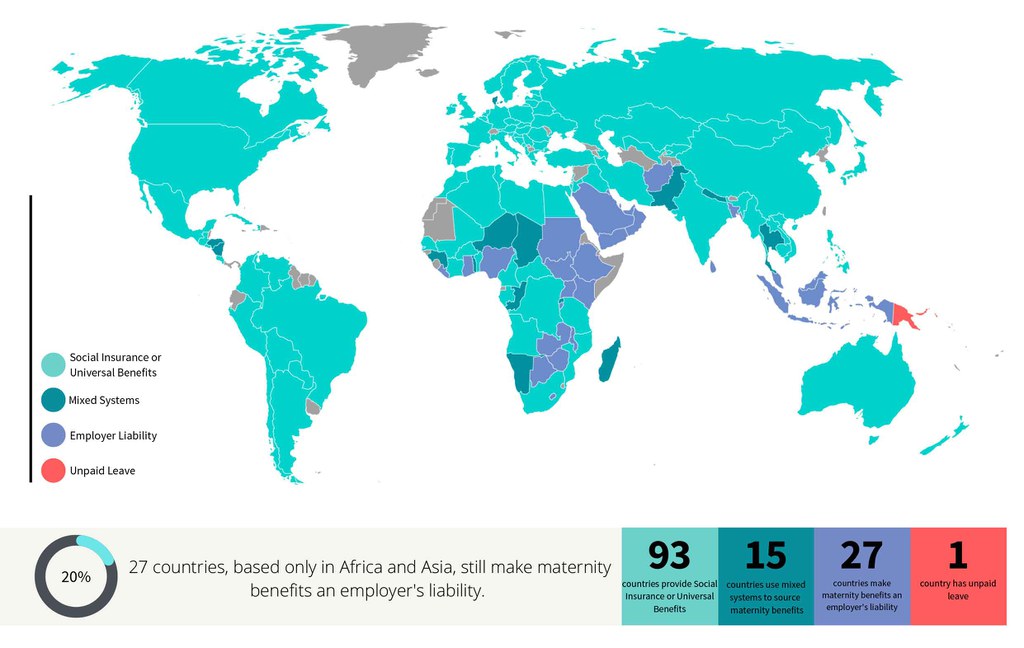
5.5 Dismissals During Pregnancy
Does the law protect workers from dismissals during or on account of pregnancy?
International Regulatory Standard
Article 8 of the Maternity Protection Convention, 2000 (No. 183) stipulates that it is unlawful for an employer to terminate the employment of a woman during her pregnancy or absence on leave or during a period following her return to work, except on grounds unrelated to the pregnancy or birth of the child and its consequences or nursing.
Moreover, a woman is guaranteed the right to return to the same position or an equivalent position paid at the same rate at the end of her maternity leave.
Article 11 (2)(a) of the UN Convention on the Elimination of All Forms of Discrimination against Women (CEDAW) states that to prevent discrimination against women on the grounds of marriage or maternity and to ensure their effective right to work, appropriate measures should be taken, including the prohibition on, subject to the imposition of sanctions, dismissal on the grounds of pregnancy or of maternity leave and discrimination in dismissals based on marital status.
Methodology
Whether law protects workers from dismissal during pregnancy:
1: The legislation prohibits employers from terminating workers during or on account of pregnancy (e.g., medically certified sickness related to pregnancy) except in cases of gross misconduct.
0: The legislation does not protect workers from dismissal during or on account of pregnancy.
87% of the countries prohibit dismissal during or on account of pregnancy.
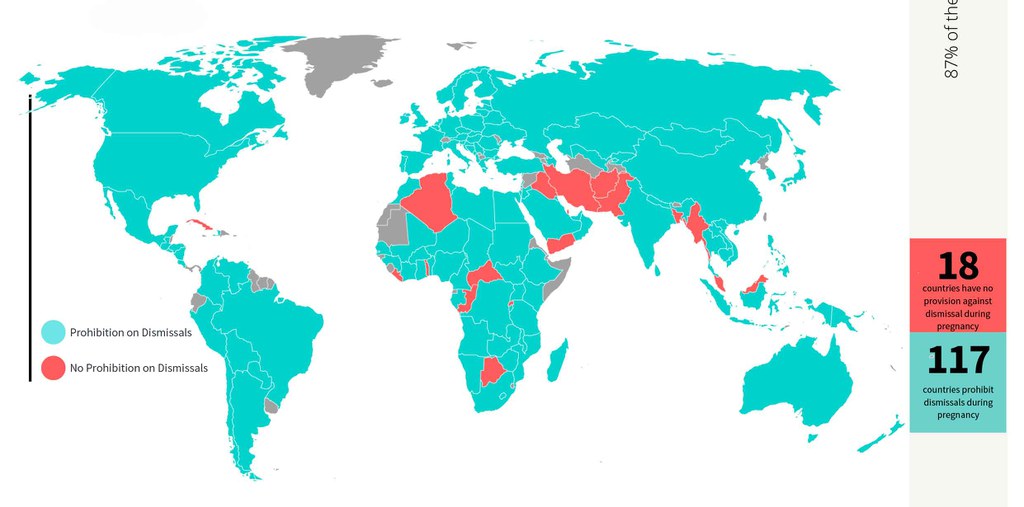
Maternity at Work - Snapshot
